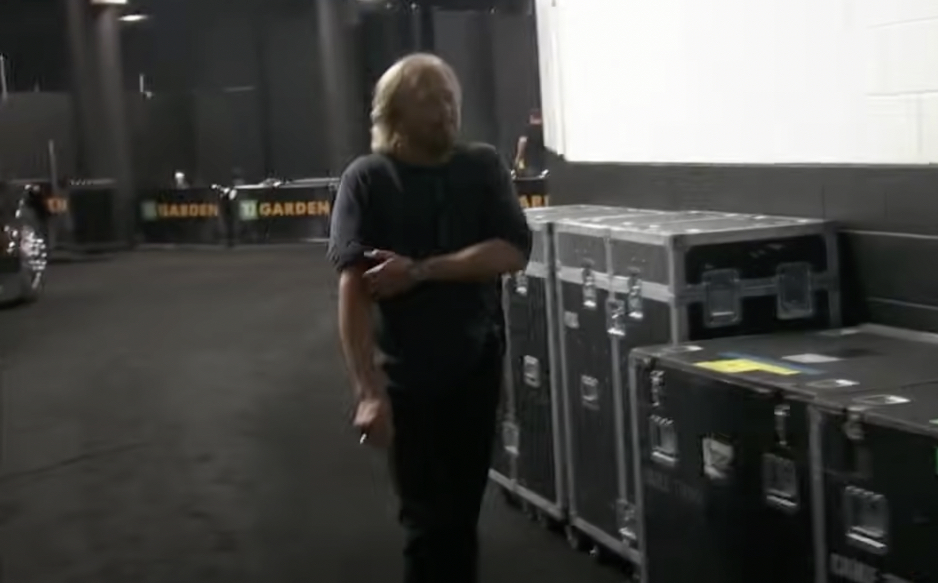
The Lone Survivor Takes the Stage: A Bee Gee Legend’s Emotional Return
For the first time in his storied career, Barry Gibb, the last surviving member of one of the 20th Century’s most iconic vocal groups, the Bee Gees, is doing something he’s never done before: walking out onto a stage completely by himself. “It’s everything to me,” he shares, reflecting on this monumental step. “It’s all I’ve ever known. I don’t know how to do anything else.”
The journey of the Bee Gees began with three brothers – Barry and his younger twin brothers, Robin and Maurice. From their early days in Australia, the Gibbs possessed a distinct sound that would captivate the world. Their harmonious blend and unique songwriting prowess led to an astounding 15 number one hits. Their work on the Saturday Night Fever soundtrack wasn’t just an album; it was a pop culture phenomenon, spending six months at the top of the charts and selling an incredible 40 million copies.
Miami became a significant place for Barry and his wife Linda, who moved there in the late 70s. It was Linda who recently encouraged Barry to return to performing. “I was fed up with him sitting on his ass,” she candidly admitted. Following Maurice’s sudden death in 2003 at the age of 53 from a tangled intestine, Barry struggled with depression. “He just moped around,” Linda recalled, despite his voice still sounding “so fantastic.”
The loss of Maurice was particularly difficult, coming 15 years after they had lost their youngest brother, Andy, following a long battle with drugs. Maurice’s death also created a rift between the two remaining brothers, Barry and Robin. In a 2009 interview, they both acknowledged being “afraid of each other.” Barry felt Robin’s way of expressing himself was by “not going for it,” while Robin wanted to preserve the Bee Gees as the trio they once were.
Despite the complexities, a poignant moment of reconciliation occurred in 2009 at Barry’s Miami home studio. He and Robin revisited some of the Bee Gees’ biggest hits. This session, filled with nostalgia and raw emotion, would tragically be the last time the brothers would sing together. Barry observed that Robin seemed to be struggling, everything requiring more effort than before.
In 2012, Robin passed away from cancer. Barry shared that he had told Robin before his death that their dream had already come true and he should stop worrying. “The Dream came true, Rob. It’s okay. Nobody sings like you.”
Embarking on a solo tour at 67 is a significant undertaking, one Barry admits came with a sense of “almost nakedness” and risk. He questioned if people would still care. However, he is not entirely alone on this journey. His oldest son, Steven, a heavy metal guitarist, joins him on stage, as does his niece, Samantha, Maurice’s daughter. Samantha describes performing with her uncle as the “best part” of the experience. Their duet of “How Can You Mend a Broken Heart” is particularly moving, a moment of shared healing and grieving on stage. Barry has observed an emotional vulnerability in his father that he hadn’t seen before, noting that losing Robin allowed Barry to feel more openly and become spiritually stronger.
Though he finds it difficult not to look at the images of his brothers flashed on screen during performances, the absence of their voices is a constant presence. “It’s an everyday thing. It’s every day and it’s every night. It never goes away,” he expressed. The question of why he is the only one left remains unanswerable, a source of persistent hurt alongside joyful memories.
As Barry Gibb: The last Bee Gee goes it alone on this solo venture, he is finding that the audience is still very much with him. How does it feel? “Sort of like a rebirth,” he says. “It’s a great therapy and you just feel alive and it’s about seizing that now.” This tour is not just a performance; it’s a powerful testament to resilience, memory, and the enduring power of music, a journey captured in this YouTube video.